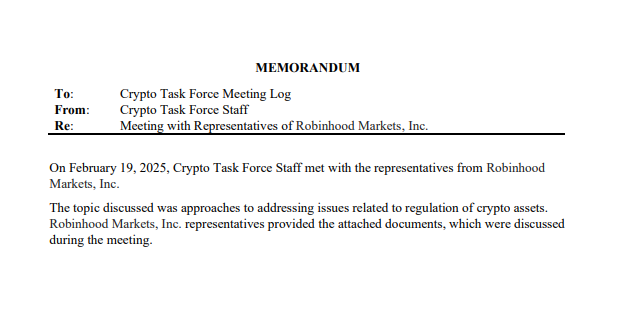Recently, the SEC held discussions with two companies regarding cryptocurrencies, revealing important details about regulatory practices. Representatives from Paradigm and Zero Hash attended the meeting, where the SEC’s crypto task force focused on addressing regulatory inconsistencies in the cryptocurrency sector. The aim is to create a more structured dialogue with industry representatives to address ongoing regulatory challenges.
Insights from the SEC Cryptocurrency Meeting Minutes
Representatives from Zero Hash LLC met with members of the Crypto Task Force to discuss regulatory issues surrounding crypto assets. They argued for the possibility of extending existing laws to encompass cryptocurrency, rather than drafting an entirely new regulatory framework.
According to the meeting minutes, three major goals must be set forth. An environment conducive to supporting U.S.-based crypto innovation should be established. Rules should be refined to effectively combat money laundering, and the mission of protecting users against illegal activities needs to be strengthened. A critical point raised during the February 18 meeting with Zero Hash was the necessity to clarify the jurisdictions of the CFTC and SEC concerning crypto.
During the February 15 meeting with Paradigm, numerous other topics were discussed. Company officials contended that the Howey Test had been misinterpreted, leading to the incorrect classification of many cryptocurrencies as securities. The new SEC administration seems to share this view, as evidenced by the halt of investigations into Robinhood’s unregistered securities sales.

As this article was being prepared, minutes from third and fourth meetings were released, held with Michael Saylor on February 21 and Robinhood on February 19. Saylor emphasized the need for a clear regulatory policy, stressing that the U.S. must not fall behind in cryptocurrency.
Robinhood welcomed the SEC’s Crypto Task Force, expressing readiness to collaborate in eliminating regulatory uncertainty. They called for clarity in the registration process for platforms and the regulation of exchanges, custody service providers, and firms offering staking services.

 Türkçe
Türkçe Español
Español








